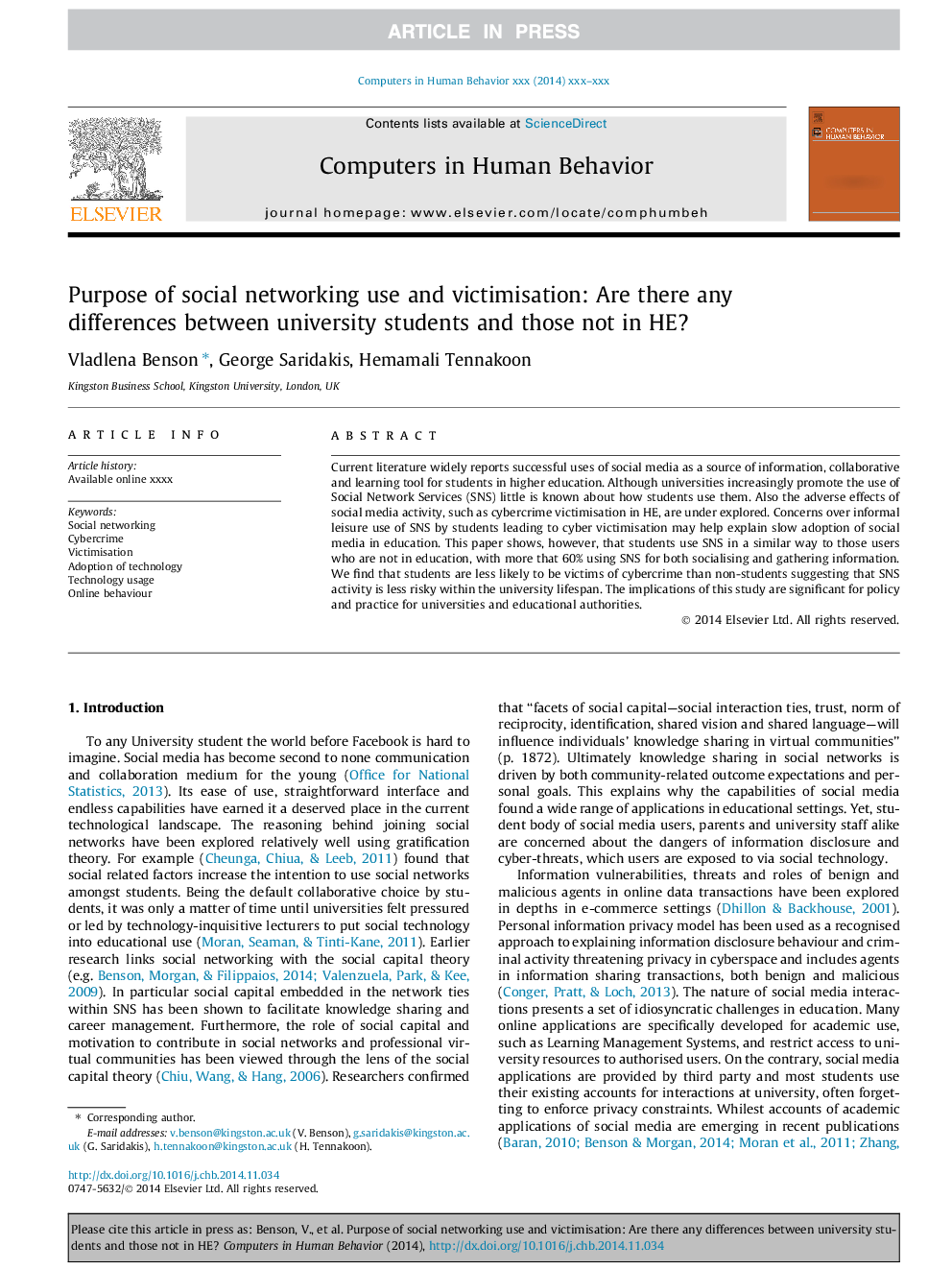| Article ID | Journal | Published Year | Pages | File Type |
|---|---|---|---|---|
| 10312627 | Computers in Human Behavior | 2015 | 6 Pages |
Abstract
Current literature widely reports successful uses of social media as a source of information, collaborative and learning tool for students in higher education. Although universities increasingly promote the use of Social Network Services (SNS) little is known about how students use them. Also the adverse effects of social media activity, such as cybercrime victimisation in HE, are under explored. Concerns over informal leisure use of SNS by students leading to cyber victimisation may help explain slow adoption of social media in education. This paper shows, however, that students use SNS in a similar way to those users who are not in education, with more that 60% using SNS for both socialising and gathering information. We find that students are less likely to be victims of cybercrime than non-students suggesting that SNS activity is less risky within the university lifespan. The implications of this study are significant for policy and practice for universities and educational authorities.
Related Topics
Physical Sciences and Engineering
Computer Science
Computer Science Applications
Authors
Vladlena Benson, George Saridakis, Hemamali Tennakoon,
